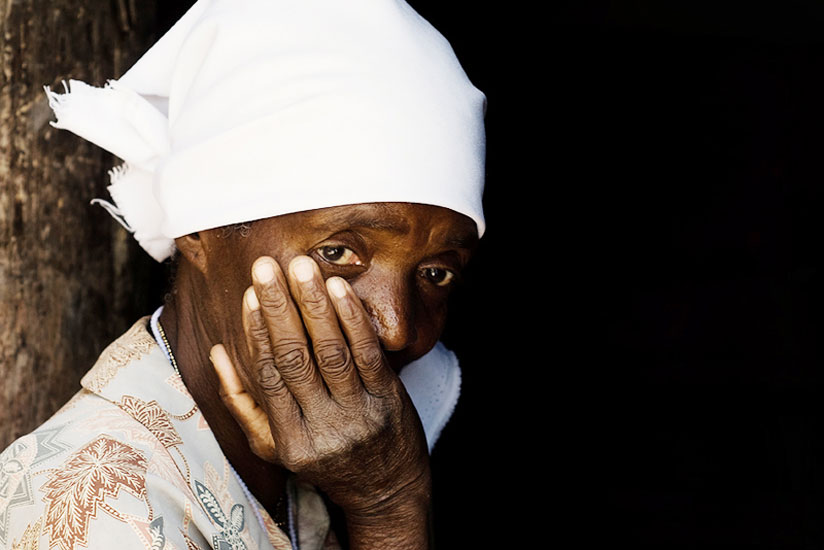Any views expressed in this article are those of the author and not of Thomson Reuters Foundation.
Land theft from widows in Uganda is common but the tide is now changing
“You must leave, or we will kill you and cut up your children.”
When Proscovia’s husband of twenty years died of cancer in 2013, his family forcibly removed her from the land he’d left behind for her to raise their three children on.
They repeatedly threatened to take Proscovia’s life, until one day her late husband’s cousin assaulted her, beating her and trying to strangle her with her blouse. Mercifully a passerby intervened and stopped the assault.
The most recent Global Widows Report states that “deprivation faced by widows continues to be one of the most serious forms of Gender Based Violence (GBV) in the modern world.”
But change is possible.
International Justice Mission (IJM) has seen widows’ deprivation first hand when their land and property is stolen after the death of their spouse; over a thousand widows like Proscovia have been our clients.
For more than ten years IJM offices in Uganda have trained, mentored and accompanied local officials, police, prosecutors and judges to enforce Ugandan national law on widows right to inherit property.
Together we have seen remarkable results, most notably a 50 percent reduction in the theft of widow’s land in Mukono county over five years.
Land ownership is central to survival and identity in Uganda.
According to a 2014 study of land rights in Uganda, 87 percent of the population lives in rural areas, 85 percent of whom depend on subsistence agriculture for survival.
Widows know that without crops they can’t feed their families. Their relatives know that too, and use threats to force them off their land, escalating to destruction of property and serious physical violence – including threats to their lives. Many of our clients came to us after their children were attacked and their crops burned.

For five years, IJM collaborated with Ugandan prosecutors in Mukono County to charge, prosecute, and convict violent perpetrators of land theft. Over 96 land grabbers were arrested, which meant that widows – including Proscovia – and their children and grandchildren could live without fear on their property.
It also meant that their local communities received a powerful lesson in the law: men who had torched crops and assaulted vulnerable women go to prison.
It turns out that treating property theft as the crime it is had a big impact on its prevalence.
In 2012, IJM conducted a Mukono County-wide survey of more than 1,806 widows. The study found that a third of widows had had their property taken from them. Stunningly, when IJM repeated the survey in 2017, we found a reduction of attempted land theft from widows of more than 50 percent.
Land theft with violence also decreased by 37 percent. The study also showed that both community members and local authorities demonstrated an increased understanding of women’s property rights, and women were much more likely to report the crime.
Notwithstanding the improvements, the recent study also demonstrated that community members still viewed the formal justice system as challenging to access due to costs, lengthy timeframes, language barriers and limited protections for widows in relationships outside of formal marriage.
Moreover, the durable cultural norms of women’s inferiority and their lack of access to the formal justice system mean that Ugandan women are still highly vulnerable to property theft.
The United Nation’s 2030 Sustainable Development Goals (SDGs) place women’s ownership of land squarely on the global development agenda.
The SDGs contain targets and indicators for women’s access to land, property and inheritance. Those worthy goals require national governments, donor nations, and development institutions to build justice systems that protect the safety and access of women to land ownership and prosecute and punish those who would prey upon them.
Such efforts, when accompanied by community-based dialogue and leadership aimed at changing cultural norms that tolerate violence, exploitation and economic dispossession, will be essential.
The fight’s not yet won but victory is on the horizon.
Holly Burkhalter is senior advisor at International Justice Mission. She stewards IJM’s relationships in the policy, human rights and development communities.

